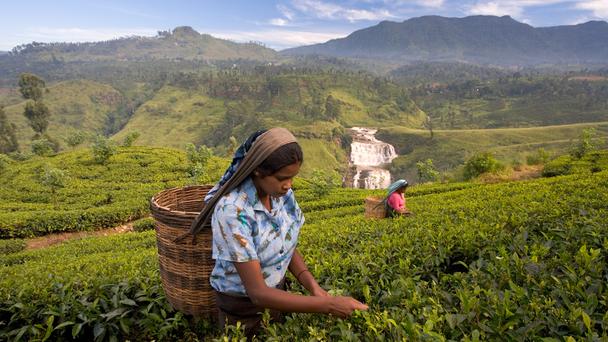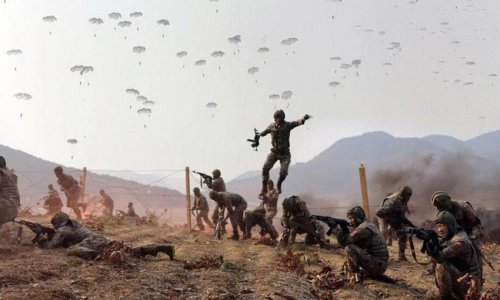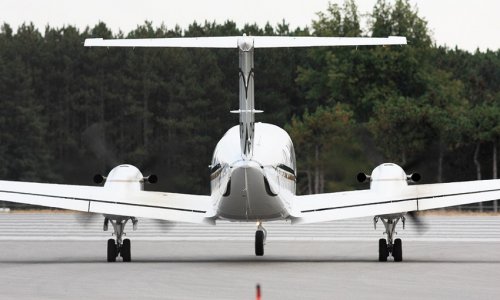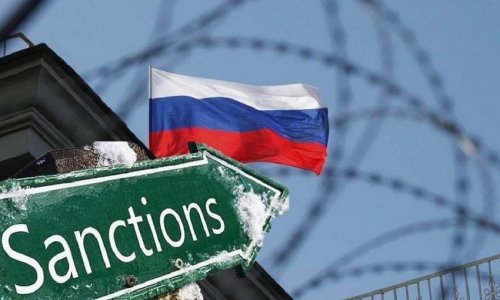Follow us !
South Asia’s new adrenaline capital - PHOTO
World
21:00 | 08.07.2014

South Asia’s new adrenaline capital - PHOTO
It was 6 am and there was not another person in sight. The first rays of dawn split the thin vapour of clouds and I could see all of Sri Lanka light up before my eyes. The pink sunrise illuminated the beaches and jungles to the south, grew north to the towns of Hatton and Kandy in the distance, then rested on the ghostly shaped peak on which I stood. I was at the top of Sri Pada, a 2,243m-high conical peak, regarded as the holiest mountain on this tear-shaped island. It was the perfect place to begin a thrill-seeking Ceylonese adventure.It had been a tough climb. I had started in complete darkness three hours earlier in the one-street village of Nallathanni. Only a few days before, I had never heard of the place, but that was where the train conductor advised me to spend the night. With the help of a cheap torch bought at a local guesthouse, I had picked my way through thick jungle foliage inhabited by elephants, wild boar and leopards – as well as leeches and other nasties – before passing beneath temple arches overrun by creepers and finally making the long ascent up countless knee-shaking steps hewn from rock. It all seemed very Indiana Jones-like – especially as the only human footfall had been mine. It couldn’t have been farther from the hullaballoo of the capital Colombo, 140km to the west.In Sri Lanka, the lack of thrill-seeking travellers should come as no surprise. Over the past few decades, the country has been in the grip of a brutal civil war between the Tamil Tigers and government military forces, meaning that the country’s Central Highlands – a patchwork of waterfalls, craggy peaks, deep ravines, scarred mountains and humid tropical jungles – has remained underdeveloped, withstanding the rampant tourism that has overrun south Asia’s other great adventure capitals, such as Pokhara, Kathmandu and Leh, Ladakh. Thankfully, peace has prevailed since May 2009 and things are beginning to take a very different direction.The proximity of Colombo to the mountains, reached via a glorious twisty-turny train ride through tea plantations and hill stations, has given rise to a nascent adventure sports industry. And while only a handful of travellers make it to Sri Pada outside the Buddhist pilgrimage season in April, there are plenty of adventurous activities year round.The most popular place to get wet and wild lies 50km northwest of Sri Pada in Kitulgala. With two prolonged monsoon seasons, the town is perfectly suited for all manner of water sports, and with three river playgrounds to choose from – the Mahaweli, Kalu and Kelani (where the Academy-Award-winning film The Bridge over the River Kwai was filmed) – it is an ideal spot for beginner and expert rafters, kayakers and canoeists.Tour operator Kitulgala Adventures knows the rivers better than anyone and can organise anything from one-day waterfall abseiling to three-day rafting trips that pass through otherwise inaccessible tracts of jungle. I took their one-day canyoning trip to Kataran Oya, and in the heat of the day I couldn’t resist the temptation to cool down by throwing myself into the natural rock pools and sliding down a fierce 5m-high waterfall. The most rustic place to dry off afterwards is Rafters Retreat, a homely guesthouse on the outskirts of town that also offers guided nature tours and caving.Lake Gregory, Nuwara Eliya Sri LankaBoating and water sports on Lake Gregory, Nuwara Eliya. (Rudi Van Starrex/Getty)While the jungle habitat surrounding Kitulgala is home to a number of elephant corridors and river crossings, it’s also possible to explore the terrain by other means. Rough, unmaintained trails crisscross the forests, and an ideal way to get off the beaten track is by mountain bike. While guided day tours are available, it’s more of a challenge to head out on the bracing 85km route to Nuwara Eliya, capital of the Central Highlands and famous for its Scottish-style golf courses, lake fishing and British colonial lodgings. In particular, the St Andrew’s Hotel, a Tudor-style country retreat with its own wetland, is well worth a visit, if only to catch your breath over some freshly brewed tea.(BBC)Bakudaily.az










